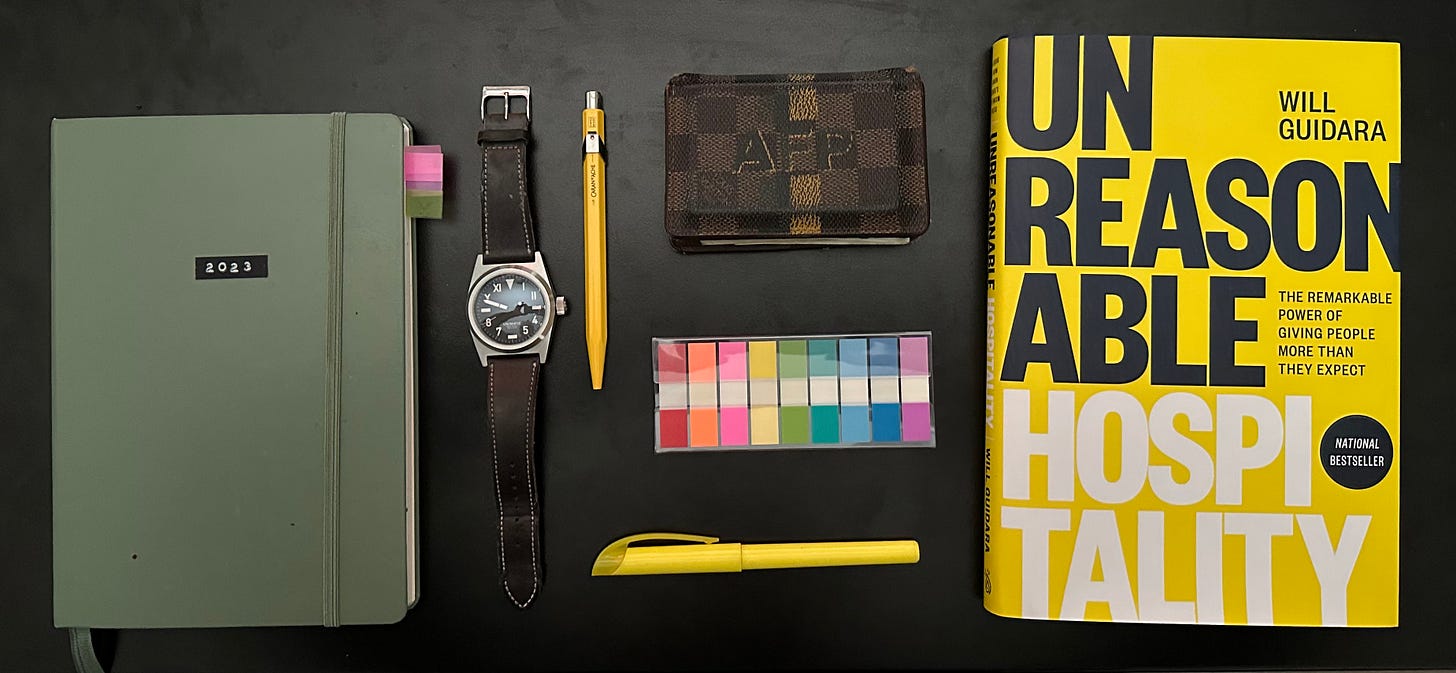Mainly, Notes To Self - my weekly attempt to compress everything noteworthy I read, watched, listened to, and discovered during the past week.
Bit of a rough week on the home front. Our household went down with COVID, and last Sunday, between fevers and teething, may have been the most challenging parenting day on record. We are all on the up and up now, but even a brief illness always makes me reflect on my gratitude for my family’s health. Onward!
Reading
Words are lossy approximations though. The bandwidth of language is lower than the bandwidth of perception. Sampling with words is like taking a photo with an old camera that can see only a small number of colors. Any set of words Yoda chooses will invariably fail to capture the rich nuance of how he perceives the world
I went down a Cedric Chin rabbit hole this week:
Goodhart’s Law Isn’t as Useful as You Might Think
if you want to improve some process, you have to ignore the goal first, in favour of examining the process itself
The Three Kinds of Non-Fiction Books
Branch books are the most common type of book you'll find in the non-fiction section. These are books that consist of a single idea. The rest of the book is then padded out with examples, extrapolations, and implications of that single idea. A good example of this is Nicholas Nassem Taleb's Antifragile, which can be summarised in a single sentence: "the world consists of systems that are fragile (break easily), robust (are difficult to break) and are antifragile (gets stronger the more you try to break it e.g. like democracy)." The rest of the book explores the full implications of seeing systems as 'fragile/robust/antifragile'.
An Extracted Tacit Mental Model of Business Expertise
The implication is that if you want to get really good at business, you should systematically acquire skills in each of the three categories, specific to your particular business, and then — more importantly — grok the relationships between the three categories.
Emerson’s 21 Principles of Self-Reliance by Justin Murphy - a reminder to re-read
Learning to interpret your inner light is a skill that must be practiced continually over time. It is not "anything goes." One must be accountable to it, as if it is an external constraint. One can be more or less accurate in reading it.
The Economics of Startup Swag by Byrne Hobart
Swag is, of course, a form of marketing. And like many other kinds of marketing, it has nonlinear payoffs. Very early-stage companies have an interesting hype cycle, where the fact that being interesting in such a nascent state is itself interesting. Adding some scarce physical representation of connection to them is a nice way to both exploit that dynamic and expand it.
The Techno-Optimist Manifesto by Marc Andreessen
In fact, technology – new knowledge, new tools, what the Greeks called techne – has always been the main source of growth, and perhaps the only cause of growth, as technology made both population growth and natural resource utilization possible.
Listening
The Knowledge Project #179 Dr. Gio Valiante (Part 1): Discipline and Resilience
This should be available this coming week on the public Knowledge Project feed. As the guy that signs this email with “spirited and resilient,” this episode was like catnip.
This discussion includes:
The 5 Ways to Win. My favorite is #4 Differentiated Thinking
The importance of routine in managing cognitive load
Environmental cues
“Primal Cues” community signals the need for success or success is the only option.
High-stakes environments
Developing resilience in kids
Random
My EDC
1. Leuchtturm Dot Grid Hard Cover A5 Notebook 2. Unimatic Modelo Une - Hodinkee Ltd. 3. Caran D’ Ache ballpoint pen, blue fine tip cartridge 4. Bic Bright Liner Highlighter 5. Golcellia sticky tabs 6. LV Pocket Organizer wallet, I monogrammed it myself. 7. Whatever book I’m currently reading. 8. Not pictured iPhone 14pro
Until next week.
Stay spirited, stay resilient.
Andrew


